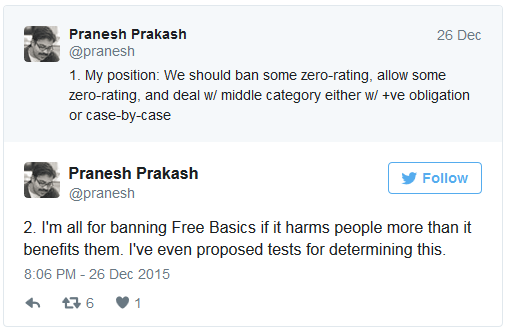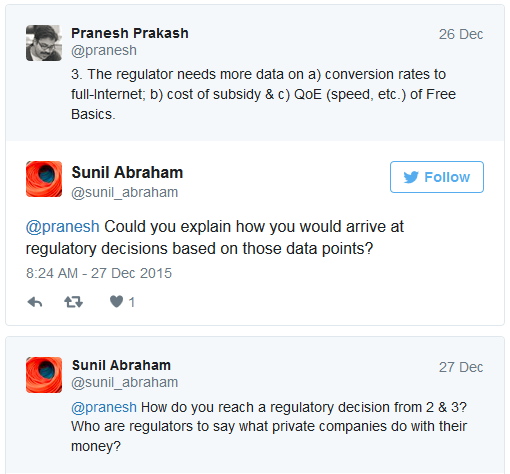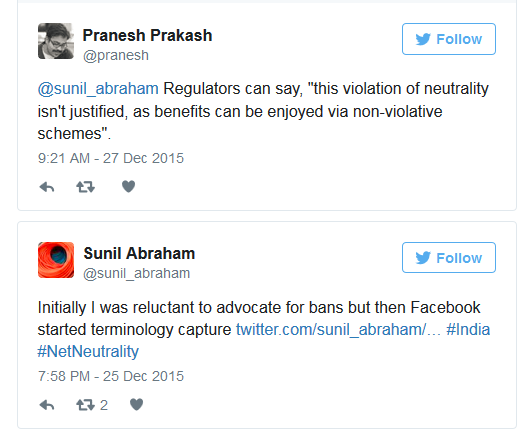Facebook Free Basics vs Net Neutrality: The top arguments in the debate
On Twitter, there's a whole conversation around Facebook Free Basics and whether zero-rating platforms should be allowed in India. Here's a look at the debate.
The article was published in the Indian Express on December 31, 2015. Sunil Abraham and Pranesh Prakash were quoted.
Facebook’s Free Basics app, which aims to provide ‘free Internet access’ to users who can’t afford data packs, has run into trouble in India over the last two weeks. After regulator TRAI issued a paper questioning the fairness of zero-rating platforms, it also asked Reliance Communications (the official telecom partner for Free Basics) to put the service on hold.
Facebook on its part has gone for an aggressive campaign, both online and offline, to promote Free Basics and ensure that its platform is not banned permanently. For Net Neutrality activists, zero-rating platforms are in violation of the principle as it restricts access to free, full Internet for users.
On Twitter too, there’s a serious debate unfolding around Free Basics and whether zero-rating platforms should be allowed in India. Here’s a look at some of the prominent voices around this Net Neutrality vs Free Basics debate.
Watch our video
Nikhil Pahwa, founder of news website MediaNama, has been campaigning for quite some time against zero-rating platforms in general and Net Neutrality. On Twitter, Pahwa points out that the problem with the zero-rating apps is that it gives telecos right to play kingmaker, and get into a direct relationship between a website and a user.
Pahwa also wrote a counter-blog to Mark Zuckerberg’s column in The Times of India questioning why Facebook is going with this restricted version of the web on Free Basics, rather than giving access to all websites.
He posted recently on Twitter, “Why hasn’t Facebook tried any model other than on which gives it a competitive advantage?”
Pahwa adds, “With zero rating, telcos insert themselves into a previously direct relationship between a site and user. Some sites made cheaper versus others. Said it earlier, saying it again. Problem with zero rating is that it gives telcos the right to play kingmaker through pricing. So Net Neutrality battle isn’t just about Facebook. It’s about telcos lobbying for differential pricing+revenue share from Internet companies.”
Pranesh Prakash, the director for policy at Centre for Internet and Society (CIS) in Bangalore, has said that a total ban might not be the ideal solution and one should look at the platforms on a case by case basis.
He writes on Twitter, “My position: We should ban some zero-rating, allow some zero-rating, and deal w/ middle category either w/ +ve obligation or case-by-case. I’m all for banning Free Basics if it harms people more than it benefits them. I’ve even proposed tests for determining this. The regulator needs more data on a) conversion rates to full-Internet; b) cost of subsidy & c) QoE (speed, etc.) of Free Basics.”
Check out Pranesh's tweets below



Sunil Abraham, executive director at Centre for Internet and Society, has however questioned Free Basics on Twitter. He also posted counter-points to Pranesh’s tweets about data on conversion being used to create regulations around zero-ratings. He’s also called for a ban on Free Basics.
Check out his tweets below



